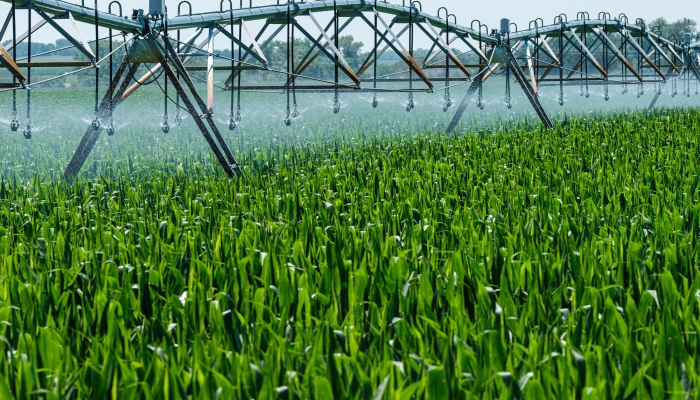Advancements In Irrigation

NRD Water Conservationist
As Nebraska grapples with the challenges of erratic weather patterns and loss of soil and water resources, producers and conservationists alike stand at the forefront of addressing these issues. One of the critical factors in achieving sustainable and efficient agriculture is the advancement of crop irrigation techniques. In recent years, remarkable innovations have emerged that not only enhance crop yields but also contribute to significant water and energy saving.
- Smart Irrigation Technologies: Real-time Monitoring
Advancements in sensor technology and data analytics have given rise to smart irrigation systems. These systems collect data on soil moisture, weather conditions, and crop needs in real-time. Farmers can then adjust irrigation schedules and quantities based on this information, optimizing water use and minimizing waste.
The district sells some irrigation scheduling tools at a 50 percent discount to irrigators in the district. The equipment is also for sale to others at regular prices.
- Precision Agriculture: Tailored Irrigation
Precision agriculture integrates technology, data, and automation to customize irrigation based on specific crop needs and soil conditions. GPS-guided equipment and variable rate irrigation enable farmers to apply water precisely where it is needed, reducing waste and optimizing yields.
- Conservation of Natural Resources: Soil Health and Erosion Prevention
Another critical benefit of modern irrigation techniques is the conservation of natural resources, particularly soil health and erosion prevention. By delivering water directly to the root zone we can maintain optimal soil moisture levels, reduce erosion, and prevent nutrient leaching. Healthy soil leads to increased crop productivity and reduces environmental impact.
- Water Savings: Healthy soils retain moisture more efficiently, reducing the need for excessive irrigation.
- Energy Savings: Less water pumping and reduced soil erosion lead to energy savings in the long run.
The advancements in crop irrigation techniques represent a significant leap forward in sustainable agriculture. By reducing water wastage and optimizing energy use, these innovations not only improve the economic viability of farming but also address the pressing global challenges of water scarcity.
Farmers worldwide are adopting these techniques to maximize their crop yields while minimizing their environmental footprint. As technology continues to evolve, we can expect even more sophisticated solutions that enhance water and energy savings in agriculture, making our food production systems more resilient and sustainable for the future. The conservation of soil health and prevention of erosion are crucial aspects of this sustainable agricultural revolution, ensuring that our precious resources are used wisely for generations to come.

